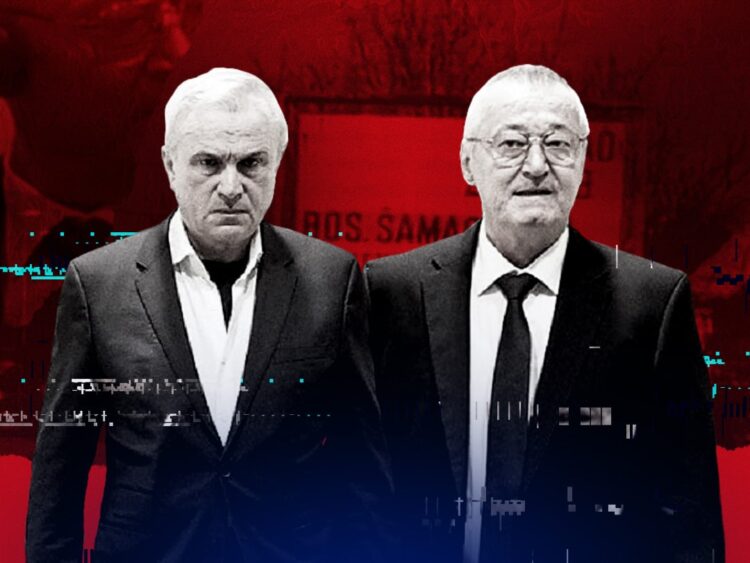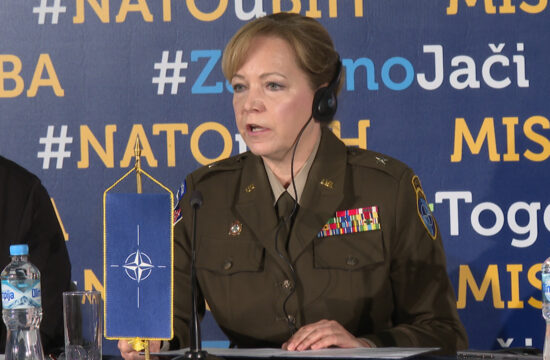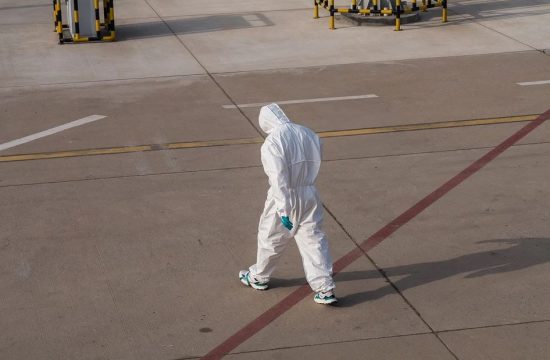
The International Residual Mechanism for Criminal Tribunals (IRMCT) sentenced former top Serbian security officials, Jovica Stanisic and Franko Simatovic, to 15 years in prison each in the longest process before the UN court. Pročitaj više
The Appeals Chamber of the Mechanism, composed of Judge Graciela Gatti Santana (Presiding), Judge Lee G. Muthoga, Judge Aminatta Lois Runeni N'gum, Judge Yusuf Aksar, and Judge Claudia Hoefer, delivered today its judgement on the appeals filed by Mr. Jovica Stanisic, Mr. Franko Simatovic, and the Office of the Prosecutor (“Prosecution”) against the judgement in the case of Prosecutor v. Jovica Stanisicand Franko Simatovic, pronounced on 30 June 2021 and filed in writing on 6 August 2021 by the Trial Chamber of the Mechanism.
The Appeals Chamber dismissed Mr. Stanisic’s and Mr. Simatovic’s appeals against their convictions for aiding and abetting murder as a violation of the laws or customs of war as well as murder, deportation, inhumane acts (forcible transfer), and persecution as crimes against humanity committed in connection with and following the April 1992 takeover of Bosanski Samac in Bosnia and Herzegovina. Mr. Stanisic’s and Mr. Simatovic’s criminal responsibility was based on findings that they organized the training of and then deployed Serb forces who participated in the takeover and the crimes. The Appeals Chamber also dismissed Mr. Stanisic’s and Mr. Simatovic’s appeals against their respective sentences of 12 years of imprisonment.
The Appeals Chamber granted part of the Prosecution’s appeal, finding that the Trial Chamber erred in not convicting Mr. Stanisic and Mr. Simatovic under the mode of joint criminal enterprise liability. The Trial Chamber had concluded that a joint criminal enterprise existed and that it had a common criminal purpose to forcibly and permanently remove the majority of non-Serbs from large areas of Croatia and Bosnia and Herzegovina, through the commission of murder, deportation, inhumane acts (forcible transfer), and persecution as charged in their indictment. The Trial Chamber had also found that Mr. Stanisic and Mr. Simatovic had contributed to the common criminal purpose in connection with the crimes in Bosanski Samac, but it acquitted them of joint criminal enterprise liability on the basis that it was not proven that either shared the intent to further the common criminal purpose.
The Appeals Chamber determined that the Trial Chamber erred in assessing Mr. Stanisic’s and Mr. Simatovic’s other contributions to the common criminal purpose. The Appeals Chamber also found that they shared the intent to further the common criminal purpose. Consequently, it held Mr. Stanisic and Mr. Simatovic liable as members of a joint criminal enterprise for crimes committed by various Serb forces in Bosnia and Herzegovina in 1992 in Bijeljina, Zvornik, Bosanski Samac, Doboj, and Sanski Most and for crimes committed in 1995 in Trnovo and Sanski Most. It also found them responsible for a murder committed in Daljska Planina, Croatia in June 1992. The Appeals Chamber increased Mr. Stanisic’s and Mr. Simatovic’s sentences to 15 years of imprisonment. It dismissed the remainder of the Prosecution’s appeal.
The Presiding Judge noted that the pronouncement of this appeal judgement marked a milestone in the Mechanism’s mandate to continue the material, temporal, and personal jurisdiction of the International Criminal Tribunal for the former Yugoslavia (“ICTY”), which closed in 2017. This is the last appeal judgment involving core crimes from cases originating before the ICTY.
Background: Stanisic was the former head of Serbia's State Security Service (SDB) and Simatovic former head of the country's Special Operations Unit (JSO).
They stood accused of participating in a joint criminal enterprise led by the then-president Slobodan Milosevic from April 1991 to December 1995, with the goal to remove the majority of Bosniaks and Croats from parts of the territories of Bosnia and Herzegovina and Croatia.
In the first instance verdict from June 2021 they were found guilty of aiding and abetting the war crimes committed in Bosnia and Croatia between 1992 and 1995 and sentenced each to 12 years in prison
According to prosecutors, who requested a life sentence for the two in the first-instance trial, this included crimes against humanity and violations of the laws and customs of war – murder, deportation and forcible transfer of Bosniaks and Croats.
The two were initially acquitted of all charges by the International Criminal Tribunal for the former Yugoslavia (ICTY) in 2013 but the verdict was overturned two years later.
Their retrial at IRMCT, which inherited the cases of the ICTY, began in 2017.
.





Kakvo je tvoje mišljenje o ovome?
Budi prvi koji će ostaviti komentar!